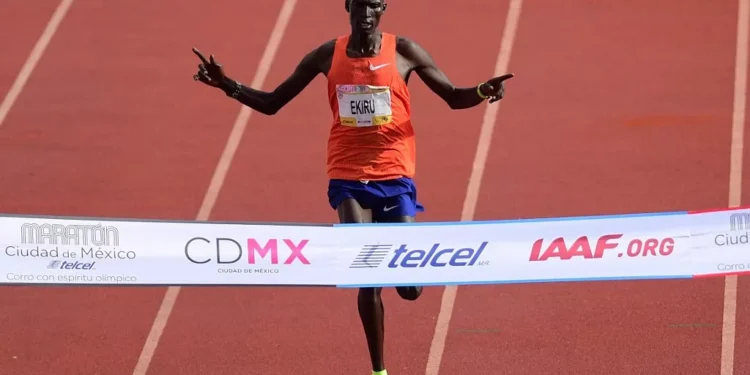The 31-year-old athlete tested positive for a doping substance after his surprise victory in Milan, where he had just won the marathon in a stunning time of 2 hours 2 min 57 sec. He had another positive test in November of the same year in Abu Dhabi, the AIU said in a press release.
Read More: Is Africa Poised for Digital Revolution? AfriLabs Annual Gathering 2023 Says Yes!
Ekiru had claimed that this abnormality was the result of legal medical treatment for his injuries.
Ekiru was initially provisionally suspended on June 28, 2022, for the use of triamcinolone acetonide – a glucocorticoid completely banned since January 2022 – and pethidine (narcotic). Confirmation of his suspension means he will be banned from racing until 2032.
The AIU added that the Kenyan was stripped of his titles, as well as his results since the Milan race and all prizes gleaned are lost.
Read More: From Trash to Treasure: The Remarkable Quest to Turn Plastic into Fuel
The ban follows a “thorough investigation” that revealed deliberate fraud by Ekiru to obstruct the AIU investigation and collusion with a doctor at a Kenyan hospital, the agency said.
“Initially, Ekiru expressed his intention to contest the allegations. But confused by substantial evidence against him, the Kenyan athlete decided not to pursue the proceedings,” the text adds.
The body has asked the Anti-Doping Agency of Kenya (ADAK) to refer the doctor to the country’s criminal authorities for further investigation. Kenya has seen a surge in doping cases that have tarnished its reputation as an athletic powerhouse. Nearly 70 athletes – mainly long-distance runners – have been banned over the past five years.









